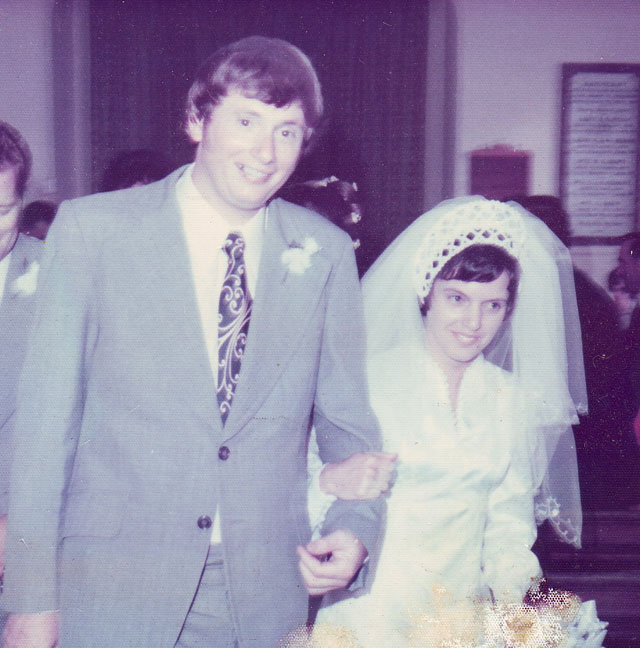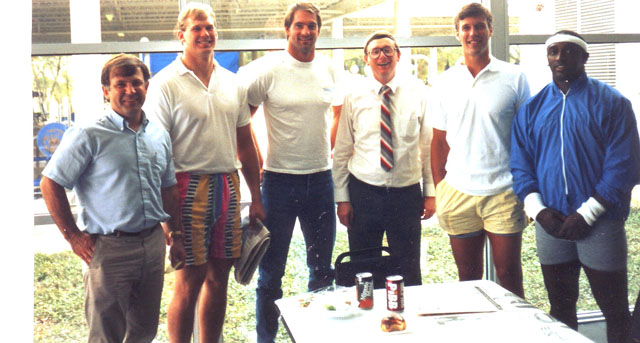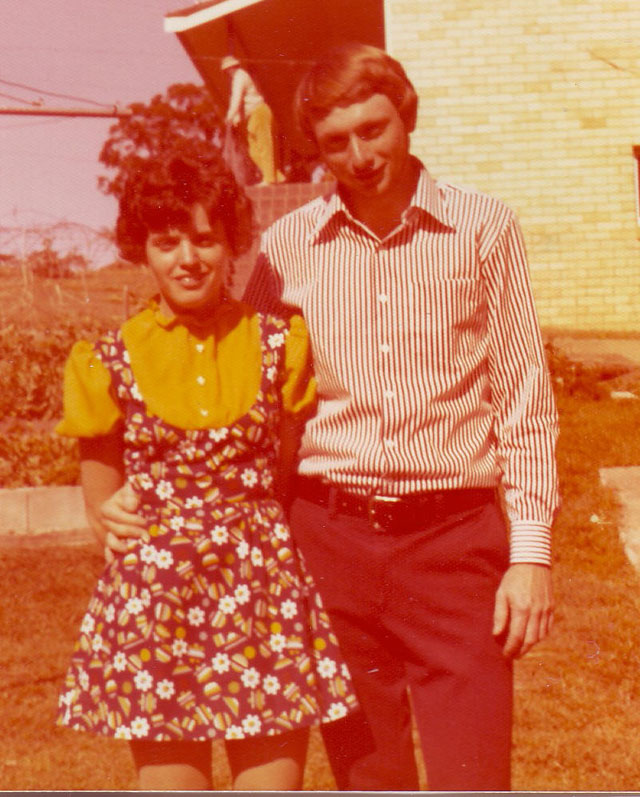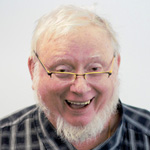
As previously explained I realised the nature of voluntary chaplaincy to a major industry such as Professional Sport required a strong philosophical housing where boundaries were very clearly defined within an InterChurch ministry framework.
Otherwise, it could very easily have hived off into an isolated, individualised ministry that could have become self-serving and grandiose. Therefore it was housed under Heads of Churches.
Reverend Roger Reid, the inaugural sports ministry chairman, explained that Heads of Churches recognised Mark Tronson's sporting links at the highest level. He mentioned that Mark and Delma exhibited three 'unquantifiable' factors - also see previous article published in Christian Today Australia: au.christiantoday.com/article/roger-reid-reveals-the-due-diligence/3891.htm
Firstly, Mark and Delma convey a spirit of expectancy that others eagerly want to embrace;
Secondly, Reverend Roger Reid observed they had a remarkable family stability. He commented, "As you observe the way they have overcome Mark's speech impediment and Delma's hearing impairment, you find any encounter with them and their children memorable and delightful";
Thirdly, there was an intuitive feeling that 'only God' brings about such a thing as this. Heads of Churches believed that the Spirit of the Lord was initiating a new paradigm of ministry across the nation. There was confidence and excitement that this new venture would 'open up' vision for 'ministry outside the church walls' in many other people across the Christian landscape.
Observing these things coming together gave Heads of Churches an opportunity to house such a 'high profile ministry' under its own wing. There was a sense in which there was a need to ensure that in no way political gamesmanship was going to derail such a venture from which so many other things might spring forth, and therefore a sharp vigilance was maintained.
This was a unique situation in so far as Top Sport plays such a dominant place in Australian history and culture.
This was one of the invaluable insights that came from my mentor, the late Reverend F P McMaster of Canberra Baptist Church, who was part of my foundation group and had been an experienced Army chaplain.
Another of F P McMaster's insights was the clear advantage for such a structure in that the Denominations provided fully accredited and highly skilled personnel (the sports chaplains). Moreover there was a clear line of denominational authority where lay ministry was likewise accredited.
In this way, the Sports Ministry did not need to spend countless hours and money re-training personnel, which has often been a bane for many ministries and missions.

Australian model
Another aspect that proved critical in the exponential development of the Sports and Leisure Ministry (since 2005 ‘Sport Chaplaincy Australia) I determined that a uniquely Australian model was necessary. My experiences from studying the various USA and UK sports ministries made me realise we could not just export another culture of ministry into our situation.
Over several years I undertook overseas study tours to the Fellowship of Christian Athletes, Athletes in Action, Pro Athletes Outreach, World Sports, Christians in Sport UK and others and each was either too highly specialised or would not easily fit into an Australian ministry context.
The home grown 'Australian chaplain' welcomed a good long look at his or her ministry by those to whom they served. This is a habit that Australians have developed over their history, where they abhor 'putting on airs and graces'. Being seen as 'ordinary' yet performing 'extra-ordinarily' is a key to Australian ministry integrity.
Reverend Russell Hinds' ministry as the inaugural Queensland cricket chaplain was an example of this. Russell's late father taught him the finer points of playing pool and, in relaxed mode, the cricketers found Russell hard to beat. "There is a great deal of camaraderie established around a pool table."
The miracle of the philosophical foundations of the Australian sports ministry is that I determined a sound theological and practical process in order for the sports ministry to be based on a solid footing. In this I was fully supported by my partners, the Heads of Churches and my own Baptist denomination.
In other words, I had comfort in knowing that my initial 18 months of foundational theological and philosophical work would not be undermined by short cuts for any immediate but unsatisfactory long term outcomes.
My 18 years founding and establishing this ministry is as the late Tony Dunkerley reflected –
(1) “the right environment was created and
(2) “the correct structures
(3) “so many could exercise their own ministries”.

 Dr Mark Tronson is a Baptist minister (retired) who served as the Australian cricket team chaplain for 17 years (2000 ret) and established Life After Cricket in 2001. He was recognised by the Olympic Ministry Medal in 2009 presented by Carl Lewis Olympian of the Century. He mentors young writers and has written 24 books, and enjoys writing. He is married to Delma, with four adult children and grand-children. Dr Tronson writes a daily article for Christian Today Australia (since 2008) and in November 2016 established Christian Today New Zealand.
Dr Mark Tronson is a Baptist minister (retired) who served as the Australian cricket team chaplain for 17 years (2000 ret) and established Life After Cricket in 2001. He was recognised by the Olympic Ministry Medal in 2009 presented by Carl Lewis Olympian of the Century. He mentors young writers and has written 24 books, and enjoys writing. He is married to Delma, with four adult children and grand-children. Dr Tronson writes a daily article for Christian Today Australia (since 2008) and in November 2016 established Christian Today New Zealand.
Mark Tronson's archive of articles can be viewed at http://www.pressserviceinternational.org/mark-tronson.html

Dr Mark Tronson - a 4 min video
Chairman – Well-Being Australia
Baptist Minister 45 years
- 1984 - Australian cricket team chaplain 17 years (Ret)
- 2001 - Life After Cricket (18 years Ret)
- 2009 - Olympic Ministry Medal – presented by Carl Lewis
- 2019 - The Gutenberg - (ARPA Christian Media premier award)
Gutenberg video - 2min 14sec
Married to Delma for 45 years with 4 children and 6 grand children